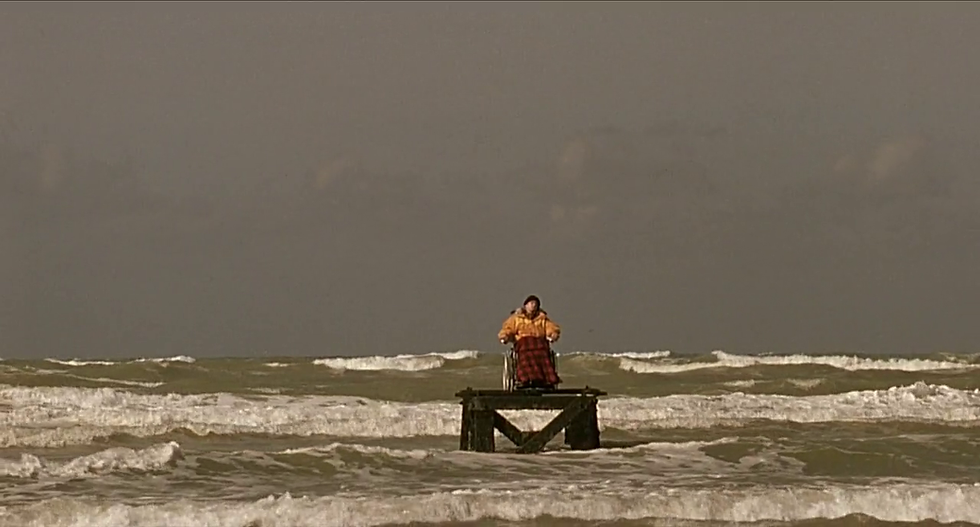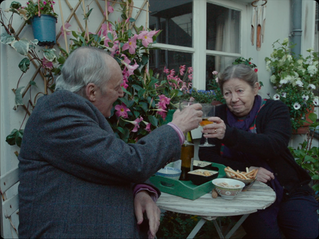The Diving Bell and the Butterfly
- Isobel Wise
- Feb 5, 2021
- 2 min read
Julian Schnabel, 2014

“I compose these bed-ridden travel notes as a castaway on the shores of loneliness.”
E, S, A, R, I, N, T, U, L, O, M... This chorus line of letters is choreographed not by any common codification, but by the frequency of each letter in the French language. Elevated beyond the basics of communication, these letters, or rather their specific usage at a hospital in Berck-sur-Mer, endeavour to liberate the life of Jean-Dominique Bauby (Mathieu Amalric) from one of excruciating loneliness and frustration. Following a stroke at the age of 43, Bauby suffers from “locked-in syndrome”: his body is paralysed but his cognition is unchanged. With help from a speech therapist (Marie-Josée Croze), Bauby develops a method of communicating by way of blinking as the aforementioned alphabet is repeatedly recited. This laborious task of constructing words, letter by letter, is undertaken by Bauby who dictates his experiences in the form of a book. Based on the 1997 memoir of the same name, Schnabel’s film could too easily have been an ableist, sensationalised account of disability, presenting Bauby as an infantilised victim upon which audiences can project their pity. However, by doing away with manipulative scores, exploitative screenplays and vapid overacting, this film exists as an exercise in restraint, maturity, and above all, compassion.

The first thirteen minutes of Diving Bell are shot exclusively from Bauby’s point of view. The camera shifts in and out of focus, it ‘blinks’, struggling to discern movement as if groggy from medication. Bauby’s dialogue, alarmed and cynical, is revealed to be his inner narration, spoken only within his mind and unheard by those surrounding him. Likening his body to a diving-bell—heavy, immobile, trapped beneath murky waters—it is by way of his imagination and memory that Bauby’s spirit flies. Untethered to such imprisonment, his papillon glides between fantasies and recollections of the past. On skis he cascades down meringues of snow; on shorelines he embraces lovers; he is effervescent and debonair; we watch him gorge at Le Duc, flirt with Empress Eugénie; here he is a father, a flâneur, Marlon Brando; we see what he was, what he wanted, and what he never could be. These reveries and musings—some humorous, some despondent—are punctuated by the clinical nature of his reality whereby the memories of his father, or a trip to Lourdes, are made poignant and ironic with their inclusion alongside assisted bathing and nurse visits.










Comments